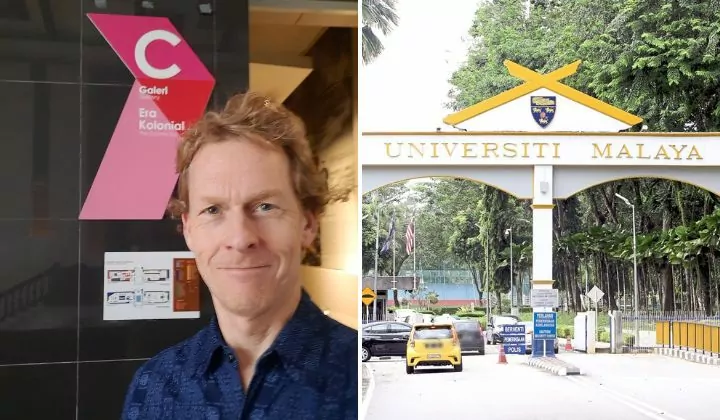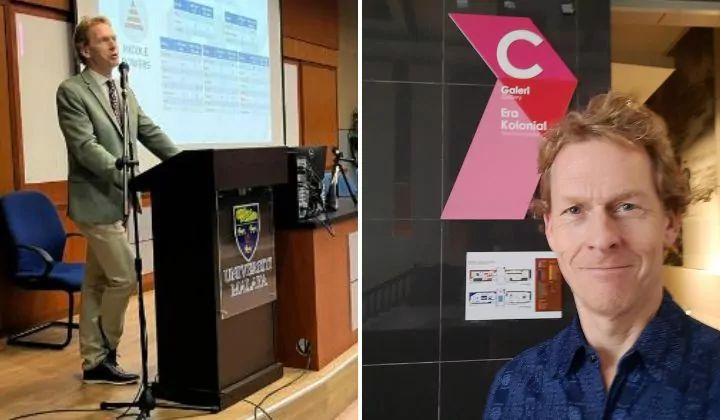Should The Rich Pay More Tax And Be Denied Government Subsidies?
LHDN announced that 85% of personal income tax collections in 2022 came from the T20.

Subscribe to our Telegram channel or follow us on the Lumi News app for the latest stories and updates.
The debate on whether the rich should pay more taxes and be denied government subsidies has been discussed for many years.
Some argue that the wealthy should contribute more to society, while others believe everyone should pay an equal share.
Prime Minister Datuk Seri Anwar Ibrahim recently announced that the high-income group, or T20, will no longer receive the government’s subsidy regarding electricity tariffs and Hajj.
Only domestic users who use excess electricity will be charged the current electricity tariff and not given subsidies.
Anwar said the T20 should also bear the full cost of Hajj because they can afford it.
Should The Rich Pay Higher Taxes?
One of the main arguments for the rich paying more taxes is their greater ability to pay.
The wealthy have higher incomes and more assets than the average person, so they can afford to contribute more to society.
Additionally, the rich benefit more from government-funded infrastructure, education, and healthcare programs.
It is only fair that they pay their fair share in taxes to support these programs.
Hujan emas di negeri orang hujan batu di negeri sendiri, lebih baik negeri sendiri.
— Oyen 😾✨ (@holalolalou) June 1, 2023
Subsidi tarik utk T20 pun korg bising mcm hilang anak, lagi ada hati nak modern facilities https://t.co/3fpf8FbPwE
Another opinion is that the rich have a greater responsibility to society.
They have benefited from society’s opportunities and resources, so they should give back to it.
By paying more taxes, the rich can help reduce income inequality and provide more opportunities for those who are less fortunate.
Awak dah bersedia nak bayar Cukai Pendapatan Tahunan macam mereka semua di negara2 maju?
— Pokteh! (@akmaladi_my) June 1, 2023
Ya, kondisi klinik & hospital di Malaysia memang teruk dan uzur terutama di kawasan pendalaman dan luar bandar.
Itu yg apa PMX cuba buat, potong subsidi dari T20 supaya ada improvement nnt https://t.co/OMi3IjDeNu pic.twitter.com/eVKAveX66M
Burdening Honest Taxpayers Further Is Unfair And Undesirable
Opponents argue that everyone should pay an equal share of taxes, regardless of income or wealth.
They argue that the rich already pay significant taxes and that increasing their tax rates would discourage investment and entrepreneurship.
Another argument is that denying government subsidies to the rich would be counterproductive.
Penalizing T20 is harsh. At this point, to make it fair, GST seems a viable options.
— Fikri Roslan 🇲🇾🌺 (@fikriwiki) May 31, 2023
Just exclude GST on basic necessities like foods, medical supplies, telecommunications and electronics.
Recupperate subsidies when it is time. Not now.
Many wealthy individuals and corporations use government subsidies to fund research and development, create jobs, and stimulate economic growth.
Denying these subsidies could harm the economy and lead to job losses.
At the same time, how do we define the super-rich?
For T20 at the lowest tier, the income is RM13,000, significantly lesser than someone earning an RM40,000 salary.
Definition T20 tu luas. Org yg T20 gaji 30k, 40k xterasa bro. Tp yg lps m40 dok awal² T20 (range gaji rm10k) yg akan terasa. Every benifit xdapat, cukai kena bayar, anak nak masuk sbt, mrsm xboleh. Semua kena bayar full silap haribulan jatuh lebih rendah dr b40. https://t.co/HtdxnHRX8P
— CikguFifaGaming (@shamsulbahari86) May 23, 2023
T20 Taxpayers Contribute Lion’s Share Of Personal Income Tax In Malaysia
The public needs to understand where the taxes come from, going to and how they contribute to the country’s overall revenue.
The Inland Revenue Board (LHDN) recently announced that the T20 contributed a significant portion of personal income tax in 2022 and that corporate tax comprised a large percentage of overall tax revenue.
In 2022, T20 taxpayers contributed 85% of personal income tax, a substantial amount.
PM publicly saying T20's shouldn't receive subsidies then LHDN releases this stat which is headlined everywhere
— Emir | The Millennial Finance (@themillennialf_) May 31, 2023
Whatre they doing? 😅 Do they release tax contribution by income group every year or is this the first time?
Comms strategy is to just shoot themselves in the foot https://t.co/iLNNwC0neh
Additionally, corporate tax made up 55% of overall tax revenue in 2022, indicating the importance of businesses in contributing to the country’s revenue.
It’s also good to hear that LHDN is on track to hit its tax collection target for 2023 and that there are plans to reduce taxes for M40 while increasing taxes for some T20 taxpayers.
It’s also worth noting that the government has plans to reduce taxes for M40 taxpayers, which will benefit 2.4 million people.
This is part of the Budget 2023 plan, including increasing taxes for 150,000 T20 taxpayers.
These changes aim to ensure that the tax system is more equitable and that those who can afford to pay more do so while those struggling financially receive some relief.
Killing The Goose That Lays The Golden Eggs
The debate on whether the rich should pay more taxes and be denied government subsidies is complex.
Finding the right balance is crucial regarding taxation and government subsidies.
Lest we forget, the total tax revenue in 2022 was RM174.5 billion, while the budget for 2023 is around RM388 billion, representing a shortfall of 55%.
Even for 2023, the expected total tax collection of RM176 billion, a record, is still insufficient.
The government should not choke, strangle, and kill off the T20 group to the point they cannot pay more taxes.
Instead of linear classification of household income (B40, M40, T20), I actually prefer this
— 哈菲择 (@MHaffizJ) July 15, 2021
Income classes based on family size
What hisham said is half true. However, a household with 12k income tapi ada 8 anak, will still be a struggle. Context matters
Miskin bandar is real https://t.co/izPPZbkRH7 pic.twitter.com/9NiNlxoJ10
Policymakers need to weigh the benefits and drawbacks of different approaches and consider the potential consequences of their decisions.
Ultimately, the goal should be to create a fair and equitable tax system that supports economic growth and benefits all members of society, regardless of their income or wealth.
It is up to policymakers to strike a balance between these two views.
They must consider the potential economic impacts of raising taxes on the rich and denying them government subsidies while ensuring everyone pays their fair share.
Share your thoughts with us via TRP’s Facebook, Twitter, and Instagram.





